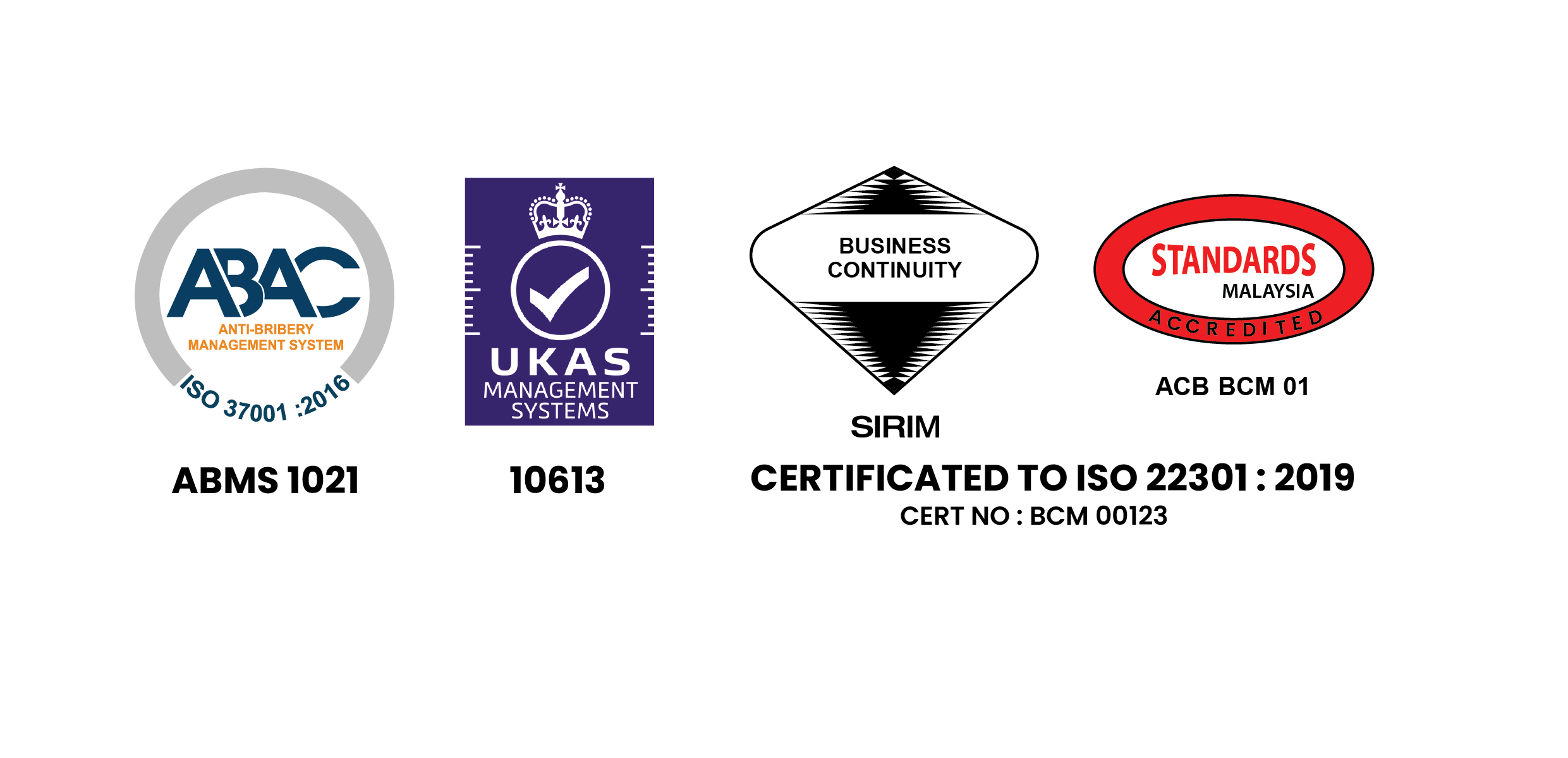Published on: 27/11/2018
Updated on: 30/11/2018
What is a Will
The act of writing wills has long been practiced in the history of human civilization. In ancient Roman society, the head of a family has power over the distribution of property by means of how a will may prevent one’s children from becoming a beneficiary. While in pagan Arab (jahiliah) communities one would write a will as a form of pride and leave out relatives in poverty.
Islam has corrected the situation by laying out the foundation of truth and justice when writing a will.
During the beginning of Islam, the act of writing wills was made an obligation for parents and closest of kin based on the following command from Allah s.w.t. which means:
“Prescribed for you when death approaches (any) one of you if he leaves wealth (is that he should make) a bequest for the parents and near relatives according to what is acceptable – a duty among the righteous”.
(Surah Al-Baqarah:180)
Later, the obligation of writing wills was repealed with the revelation of the mawarith verse in surah Al-Nisa, which clarifies the rights and distribution of inheritance through faraid laws, for example through the following verse which means:
“For men is a share of what the parents and close relatives leave, and for women is a share of what the parents and close relatives leave, be it little or much – an obligatory share”.
(Surah Al-Nisa’: 7)
The Prophet s.a.w. also states in a hadith which means:
“It is the duty of a Muslim who has anything to bequest not to let two nights pass without writing a will about it.”
(Hadith narrated by Bukhari and Muslim)
Through the above hadith, it is clear that the Prophet s.a.w. strongly encourages the writing of wills once the thought of preparing one crosses the mind.
Methods Of Writing A Will
A will is an inheritance settlement document in the form of instructions to the executor to fulfill all the wishes of the testator including implementing all strategies on planning and distribution of property after the demise of the testator.
It has certain conditions namely will to non-beneficiaries and beneficiary members protected from receiving inheritance through faraid.
Only one-third (1/3) of the balance of the property after deducting all unpaid debts can be bequeathed.
While two-thirds (2/3) from the testator’s property are the rights of beneficiaries according to Faraid Laws.
The testator may bequeath his/ her property more than one-third (1/3) if all beneficiaries agree with the distribution after the testator’s demise.
The testator may also bequeath his/ her property to beneficiaries eligible to receive faraid if agreed upon by the other beneficiaries after the demise of the testator.
This is as stated upon in one of the hadiths of Prophet s.a.w. which means:
“It is not permissible to bequeath something to an heir unless the other heirs agree.”
(Riwayat Abu Daud)
Who Should Write A Will?
All Muslims are eligible to write a will as long as you are over 18 years old, in a sound state of mind, voluntary and not forced, not prevented from managing one’s own property and if a testator is ill, he/ she must be of sane mind, has a good memory and understands the testament that is being written.
In terms of property that can be bequeathed are movable property such as vehicles, cash, savings, jewellery, stock shares, insurance, debt and others and immovable property such as houses, land, buildings and others.
If you are a person with accumulated wealth, an elderly person, an unmarried person, a person with an adopted child, an indebted person, a person with no heirs and convert (muallaf) are strongly encouraged to write a will. In other words, each and every single one of us is encouraged to write a will.
Why Is A Will Important?
Writing a will is a noble act to reveal a testator’s desire for the distribution of wealth accumulated during one’s lifetime.
The planned inheritance of property through a will can be distributed for the purpose of charity and to loved ones after one’s demise.
Writing a will is indeed beneficial as the appointment of an executor through the will document will facilitate the management and administration of inheritance after death.
The appointment of a trusted guardian through a will guarantees the welfare of underaged children after one’s death. At the same time, it also reduces the burden borne by the beneficiaries left behind.
Conditions
- WRITING A WILL
- Will is written clearly and the pen used must be black in colour.
- No use of liquid paper for corrections on wrong sentences.
- SIGNATURE OF TESTATOR AND WITNESSES
- Must be signed by testator and a number of witnesses
- must be 2 males or 2 females and 1 male (witnesses not among beneficiaries of inheritance).
- LEGALLY-OWNED ASSETS
- Assets must be owned under the name of testator legally
- Must not inherit property that is not yet certain exists.
- LEGITIMATE BENEFICIARIES
- Beneficiaries of inheritance are legitimate inheritors according to faraid laws.
FAQs
- WHAT ARE THE ELIGIBLE CHARACTERISTICS WHEN WRITING A WILL?
All Muslims are eligible to write a will as long as you are over 18 years old, in a sound state of mind, voluntary and not forced, not prevented from managing one’s own property and if the testator is ill, he/ she must be of sane mind, has a good memory and understands the testament that is being written. - ARE NON-MUSLIMS QUALIFIED TO WRITE A WILL?
Yes, and it is called a Conventional Will. - WHAT IS THE FEE FOR WILL REGISTRATION?
Once a lifetime payment of RM 371 (For registration with TEKUN Nasional only) - WHO IS THE ADMINISTRATOR APPOINTED BY TEKUN NASIONAL REGARDING MATTERS IN THE MANAGEMENT OF WILLS?
MyAngkasa Amanah Berhad (MAAB) - WHAT ARE THE BENEFITS WHEN KEEPING A WILL AT My Angkasa Amanah Berhad?
The advantages of keeping a will at Trust Companies such as MyAngkasa Amanah Berhad is to ensure the will will be kept confidential, safe from damage, destruction and that the will will be found and taken easily on time. We will also assist the beneficiaries in avoiding additional costs in the future. - WHY DO YOU NEED A WILL ADMINISTRATION?
- Faster Inheritance Administration Process
- Cheap legal costs for Court Order
- Right to recommend own beneficiaries
- Appointment of executor and trustees
- No worries & peace of mind
- Will adhere to the procedures and laws set.
- WHAT ARE THE DOCUMENTS REQUIRED IN REGISTRATION OF WILL?
- Basic Will Form (BWA)
- Physical Documents of Will (ORIGINAL & COPY)
- Copy of Identity/ Police/ Military Card/ Passport of Testator
- SI HAD WRITTEN A WILL PREVIOUSLY, WILL THE OLD WILL BE REVOKED?
The last will will still be valid and in use, it is advised to first dispose of the old will when writing a new one. - WHO SHOULD BE INFORMED IF I HAVE WRITTEN A WILL?
You should inform your family members or loved ones about the written will and where the will is kept. - WHAT HAPPENS IF A WITNESS PASSED AWAY BEFORE THE TESTATOR, WILL THE WILL STILL BE VALID OR MUST THE TESTATOR REWRITE A NEW WILL?
You do not have to rewrite the will as it is still valid even if both witnesses passed away before the testator.





















